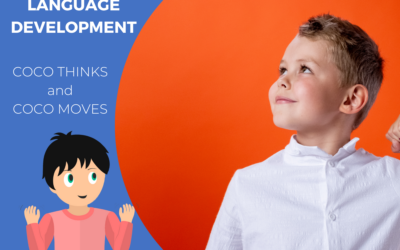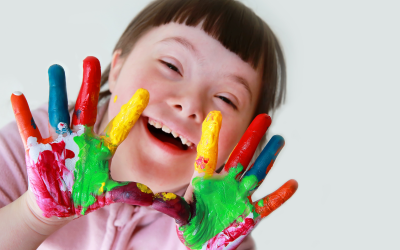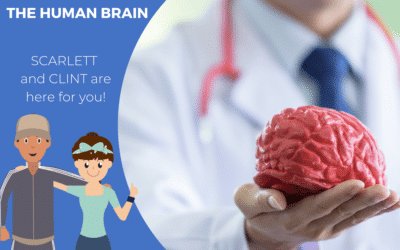Memory rehabilitation is an essential aspect of speech therapy, aimed at helping patients improve their cognitive functioning and regain their independence in everyday life. In this article, we will explore innovative approaches and new methods of memory rehabilitation that are being used in the field of speech therapy. We will also discuss emerging techniques and alternative therapies that complement traditional approaches.
Before exploring innovative approaches, it’s important to understand the foundations of memory rehabilitation in speech therapy. Memory is a complex process involving the encoding, storage and retrieval of information. Speech therapists work with patients to develop memory strategies, improve concentration, enhance information retention and promote memory retrieval.
Reminiscence
Reminiscence is an approach that involves recalling past memories. It can be used to stimulate memory by encouraging patients to share their life experiences and recall meaningful memories. Speech therapists can incorporate reminiscence activities into memory rehabilitation, using photos, symbolic objects or guided discussions to stimulate memories and strengthen cognitive connections.
Art therapy
Art therapy uses forms of artistic expression, such as painting, drawing or sculpture, to facilitate communication, emotional expression and cognitive stimulation. In the context of memory rehabilitation, art therapy can be used to create sensory and creative activities that engage visual, tactile and emotional memory. Patients can create works of art that represent meaningful memories or experiences, which can aid information retrieval.
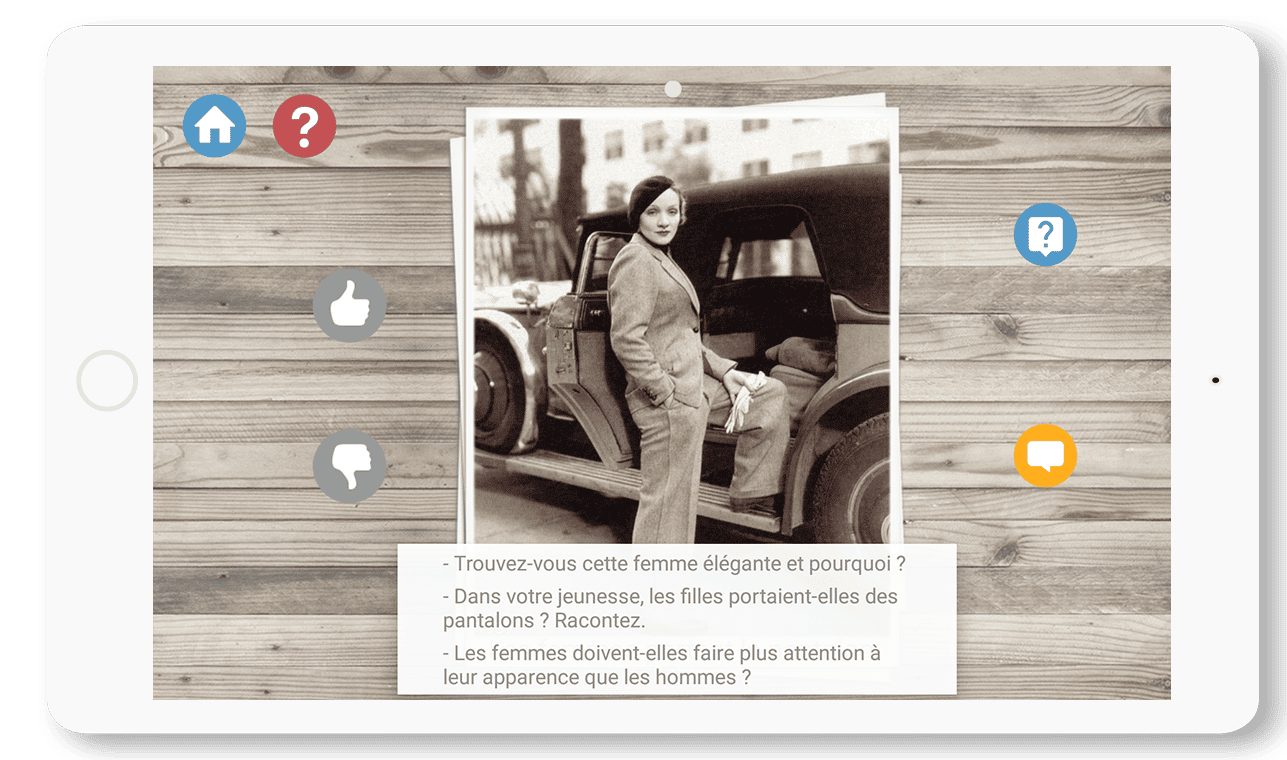
Yoga and Meditation
Yoga and meditation are practices that promote relaxation, concentration and self-awareness. These techniques can benefit memory rehabilitation by reducing stress, improving concentration and promoting brain plasticity. Specific yoga exercises or meditation techniques can be incorporated into memory rehabilitation to promote attention and memory retrieval.
Speech therapists play a crucial role in memory rehabilitation. Their expertise enables them to provide personalized support to people experiencing memory difficulties, whether as a result of neurological disorders, head injuries or other medical conditions. Working closely with patients, speech therapists use specific techniques and exercises to improve short-term memory, working memory and long-term memory. They tailor their methods to individual needs, offering practical strategies to help patients better manage their memory on a daily basis. Thanks to their expertise, speech therapists make a significant contribution to improving the quality of life and independence of people with memory problems.
Use of Mobile Applications for Memory Rehabilitation by Speech-Language Pathologists
Speech therapists are increasingly using innovative mobile applications to support their patients’ memory rehabilitation. These digital tools offer a modern, interactive approach to improving memory skills, by integrating specific strategies and adapted exercises.
Customized Rehabilitation Programs
Mobile applications enable speech therapists to create customized rehabilitation programs for each patient. By assessing the individual’s specific needs, speech therapists can choose exercises and activities that target the aspects of memory in need of improvement, be it short-term, working or long-term memory.
Fun and engaging interaction
These applications offer a fun, interactive experience, which can be particularly motivating for patients. Through cognitive games, quizzes and interactive exercises, users are encouraged to become actively involved in their own rehabilitation. This entertaining approach encourages buy-in and makes learning more enjoyable.
.
Flexibility in Daily Integration
“CLINT, your brain coach” is an application that can be easily integrated into a patient’s daily routine. With short, targeted training sessions, patients can use the app at any time of day, helping them to fit rehabilitation exercises into their busy schedules.
Accurate Monitoring & Evaluation
Mobile applications enable precise monitoring of patient progress. Speech therapists can monitor each individual’s performance over time, identifying areas where improvement is needed. This real-time monitoring feature enables you to adjust your rehabilitation programs as you go, for a more personalized and effective approach.
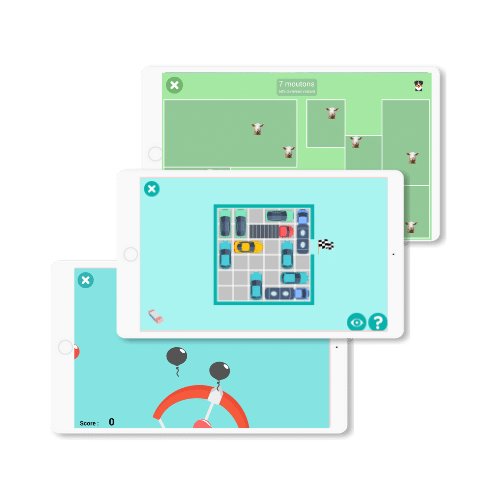
Innovative approaches and alternative therapies offer exciting new perspectives in the field of memory rehabilitation in speech therapy. By combining traditional approaches with these new techniques, speech therapists can help patients improve their memory, enhance their cognitive abilities and promote their overall well-being. It’s important to stress that every individual is unique, and approaches may need to be tailored to each patient’s specific needs. Speech therapists are trained to assess and design personalized memory rehabilitation programs, taking into account individual strengths, challenges and preferences.
CLINT, your cognitive coach
CLINT is an app with over 30 cognitive and cultural games to work onall cognitive functions, such as memory, language, attention and strategy.
The CLINT brain coach app works without wifi. It can therefore be used during sessions with the speech therapist or at home, as well as between sessions. This ensures continuity of work and improved training results.
What’s more, you can view your statistics and progress over time using the CLIT dashboard. This enables the healthcare professional to adapt the work and activities to your objectives. You can also track your progress and discover your strengths and weaknesses.
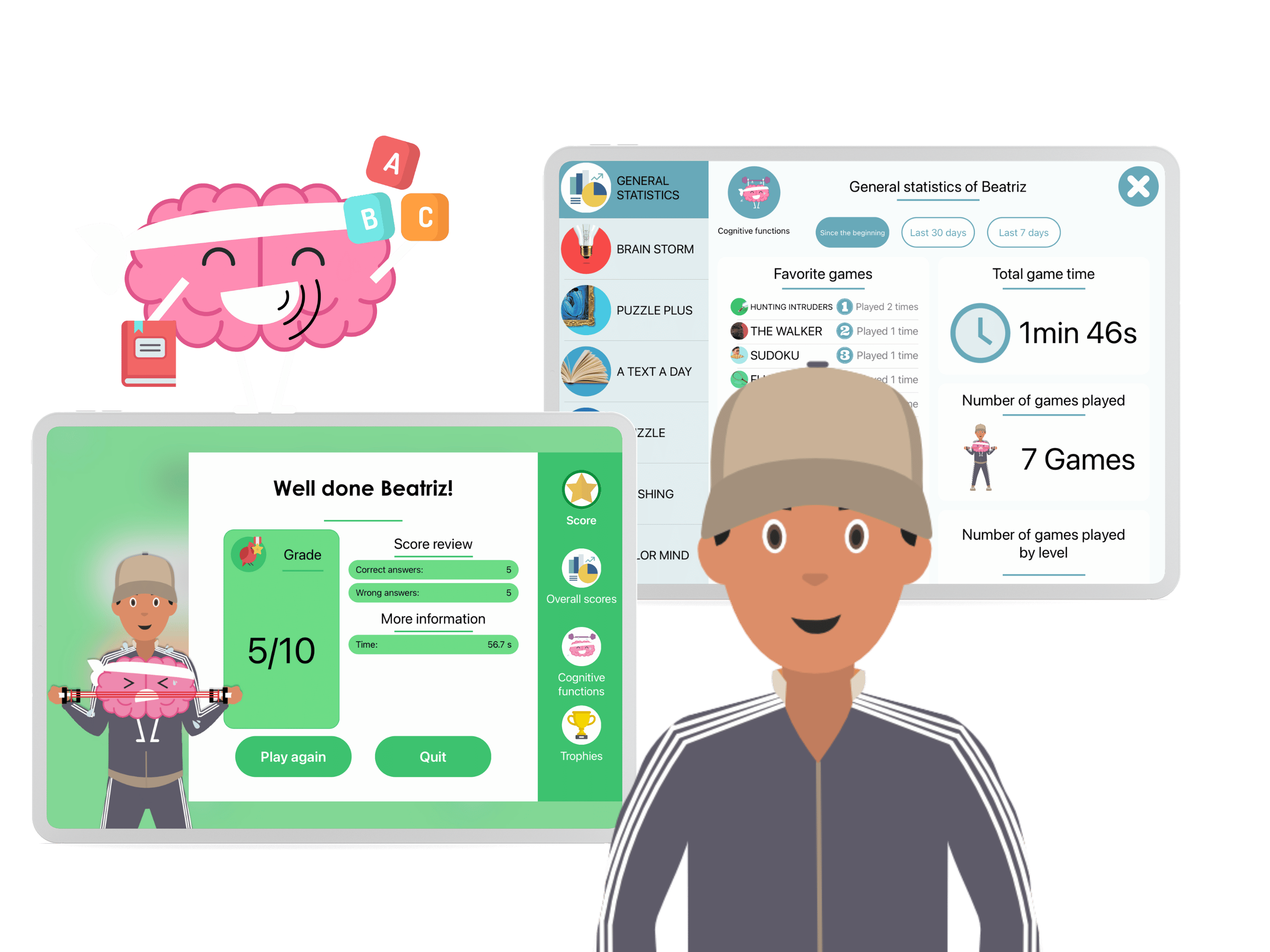
The right application for every cognitive need
COCO THINKS
and COCO MOVES
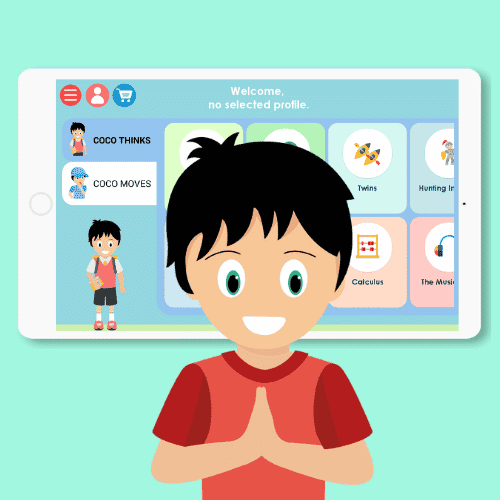
A version for children from 5 to 10 years old, with adapted educational games as well as a sports break to teach a measured use of screens and to take a break to return more serenely to educational activities.
CLINT
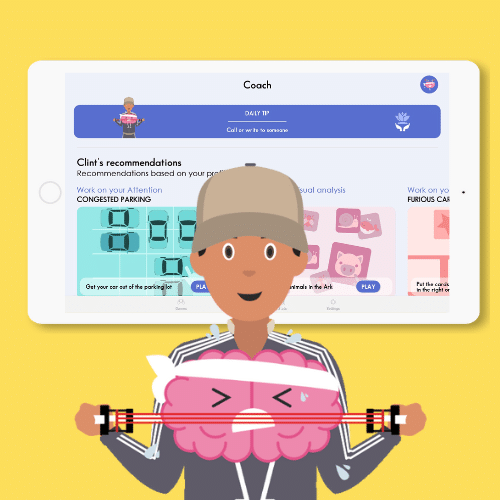
A version for adults with mild disorders, to work all his cognitive functions in everyday life.
Discover more than 30 cultural and adapted games.
SCARLETT
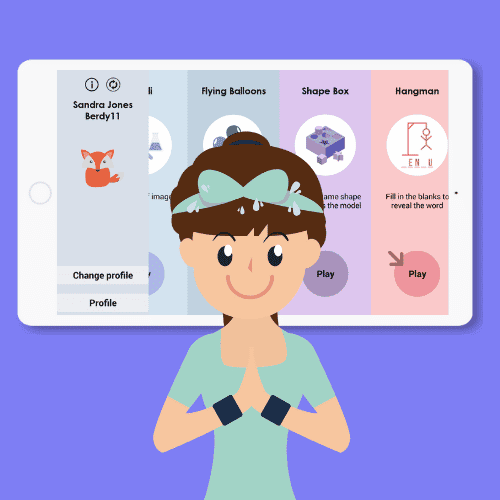
A version for seniors and adults with advanced cognitive disorders (such as Alzheimer’s, Parkinson’s…).
Easy and adapted games, to encourage players in their brain training.
Other articles that might interest you:
Supporting children with autism
Dynseo proposesSUPPORTING CHILDREN WITH AUTISM with COCO THINKS AND COCO MOVESDynseo and its team are very much...
Supporting DYS children with COCO THINKS and COCO MOVES
Dynseo proposesDYS disorders with COCO THINKS and COCO MOVESOur educational and pedagogical games program COCO THINKS...
Language development
Children communicate from birth with movements, crying, looking at each other or with smiles. After only a few months,...
Supporting children with Down Syndrome with Coco
Dynseo proposesDOWN SYNDROME with COCODown syndrome is a non-hereditary chromosomal abnormality that leads to the...
Supporting people after a stroke
Dynseo proposesStroke with CLINT, your brain training coachThe Dynseo team is very involved in helping people who have...
Supporting someone with Alzheimer’s
In this guide, we will detail how SCARLETT can be used for supporting someone with Alzheimer's. SCARLETT is a...
10 myths about the human brain you didn’t know
The brain is an incredible muscle, however there are many things we do not know, and what we do know is not always...
Using Digital Tools to Support Students with Special Educational Needs
Special Educational Needs (SEN) encompass a wide range of learning difficulties and disabilities that can hinder a...
Down Syndrome and Communication: Facilitating Interaction with Visual and Interactive Supports
When we think about Down syndrome, we often recognize it as a genetic condition that affects physical and cognitive...
How to Track Progress in People with Down Syndrome Using Digital Tools
Down syndrome, a genetic condition caused by the presence of an extra chromosome 21, affects approximately 1 in every...




